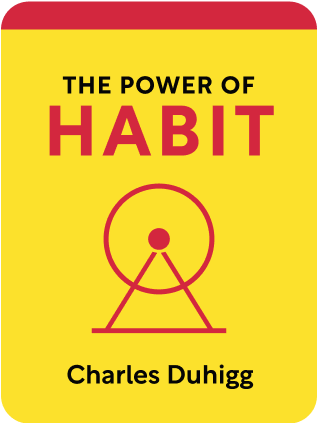

This article is an excerpt from the Shortform book guide to "The Power of Habit" by Charles Duhigg. Shortform has the world's best summaries and analyses of books you should be reading.
Like this article? Sign up for a free trial here .
What are some examples of willpower? How does willpower work?
These examples of willpower can help you contextualize how willpower works. They also show how it’s possible to train yourself to have more willpower, and why it’s necessary.
Keep reading for two key examples of willpower.
Examples of Willpower
The key to developing willpower is to predict the most painful points, and build a specific plan beforehand for how you’ll work through them. For example, if you want to start running, the most painful point is probably when you get off the couch, put on your shoes, and take the first 20 steps. After that, you can get into the zone.
To build a habit, construct a routine ahead of time to push through the pain, and keep practicing it until it becomes a habit. You don’t necessarily need to have a greater bank of willpower – you just need to make self-control automatic so you don’t even think about it, and this conserves willpower for later. Here are some examples of willpower.
Example: Patients Break Through a Pain Point
First in the examples of willpower is breaking through the pain point. This insight came from a research study of orthopedic patients in Scotland. After going through a hip replacement, exercising is important to avoid blood clots and developing scar tissue. However, it’s extremely painful, so many patients skip the practice. In an experiment, a researcher gave each patient a book with blank pages and instructions: “My goals for this week are _______? Write down exactly what you are going to do. For example, if you are going to go for a walk this week, write down where and when you are going to walk.”
Three months later, the patients who had filled in the books were walking twice as fast as the control group, and getting out of their chairs three times as fast. Within all the plans written on the pages, the key was filling in specific plans about how to deal with predicted pain points.
For example, one patient trying to walk to the bus stop each day wrote down every obstacle and what pills he would take if the pain was too much. The patients who didn’t write this down ahead of time never thought specifically about how to deal with the major pain points, and they didn’t have the willpower to push through in the moment.
Example: Developing Willpower in Starbucks Baristas
Next in the examples of willpower is the example of the Starbucks barista. For many retail chains like Starbucks, the front-line baristas join the company as their first job. They’re often not accustomed to the stress that angry customers and complicated orders bring. They may have come from environments that didn’t actively promote self-discipline and willpower. This can lead employees with lower willpower to snap at customers, lowering customer experience.
The key, as many companies like Starbucks have found, is to define routines for employees to use in rough patches. Say a customer is irate that you’ve messed up his venti double shot no foam soy extra hot latte with light whip and splenda. You want to scream at his face, but instead Starbucks has trained you to follow the LATTE method:
- Listen to the customer
- Acknowledge the complaint
- Take action by solving the problem
- Thank the customer
- Explain why the problem occurred
In training, managers drill new baristas to picture realistic stressful scenarios and to follow the LATTE method. When the real stressor comes, the baristas know how to push through it using a classic cue-routine-reward habit loop.
Now that you know several examples of willpower, you can think about how to improve willpower in your own life.

———End of Preview———
Like what you just read? Read the rest of the world's best book summary and analysis of Charles Duhigg's "The Power of Habit" at Shortform .
Here's what you'll find in our full The Power of Habit summary :
- The 3 steps to change your habits
- Why habits are at the root of success in football
- How social movements are just an expansion of habits from individuals to communities






